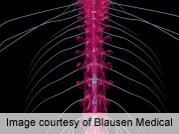Have You Heard?
**************************************************************************************
ACTRIMS 2021 Conference Review . Going virtual this year based on the WW Covid Pandemic.
See Recorded sessions posted by industry pioneers, featuring breaking news Research, Trials Resulting Outcomes
ACTRIMS Forum 2021
ChariotMS to Test Mavenclad in SPMS, PPMS Patients With Little Ability to Walk
An upcoming Phase 2 clinical trial, called ChariotMS, will test whether Mavenclad (cladribine) can slow a worsening of hand and arm function in people with progressive forms of MS with very limited walking abilities.“We are finding ways to maintain people’s upper limb function is essential to their quality of life,” Klaus Schmierer, PhD, of Queen Mary University of London and Barts Health NHS Trust, said in a press release.
MSIF Issues New Recommendations to Protect Against COVID-19
The Multiple Sclerosis International Federation (MSIF) has issued new recommendations about how people with MS should adjust their daily lives because of the coronavirus pandemic.
(LOCAL STORY) On May 15th Nevada Governor
Steve Sisolak signed the much awaited Patients Protection bill into state law that codifies the Affordable Care Act’s protections for people with pre-existing conditions.
The MS Invincibles Advocacy team further secured this bill by advocating their personal testimony's which provided specific examples of how severely our our Healthcare System has failed them in managing their Chronic MS illness.
https://www.ktvn.com/story/40482435/gov-sisolak-to-sign-bills-to-expand-patient-protections-in-nevada
MSI Advocates (L to R) Vivian Leal, Chris Noellert & Terry Andrews with Governor Steve Sisolak
One Man’s Playground is Another Man’s Horror
Multiple sclerosis has a way of messing with one’s head. Whether it’s emotional or psychiatric disorders, fatigue, brain fog, or physical problems, there’s a lot to wrestle with. And to effectively battle this disease requires you to be in a certain state of mind. Let me give you a visual example. Last weekend, the kiddos […]
https://multiplesclerosisnewstoday.com/2017/06/02/ms-one-mans-playground-is-anothers-horror/?utm_source=Multiple+Sclerosis&utm_campaign=718e1871f5-RSS_WEDNESDAY_EMAIL_CAMPAIGN&utm_medium=email&utm_term=0_b5fb7a3dae-718e1871f5-71310153
An ‘MS House’ That Lets You Walk in My Shoes
https://multiplesclerosisnewstoday.com/2017/06/02/an-ms-house-that-lets-you-walk-in-my-shoes/?utm_source=Multiple+Sclerosis&utm_campaign=718e1871f5-RSS_WEDNESDAY_EMAIL_CAMPAIGN&utm_medium=email&utm_term=0_b5fb7a3dae-718e1871f5-71310153
The MS Alphabet: DMD, Dystonia, Dawson’s Fingers and Other ‘D’ Words
When it comes to multiple sclerosis, mastering an understanding of the disease means you need to mind your Ps and Qs, dot your Is, cross your Ts, and recite your ABCs. There is so much to know about this complex disease. But the more you know as a patient, or caregiver, the more informed you will be in making critical healthcare decisions.
https://multiplesclerosisnewstoday.com/2017/06/01/ms-alphabet-dmd-dystonia-dawsons-fingers-d-words/?utm_source=Multiple+Sclerosis&utm_campaign=718e1871f5-RSS_WEDNESDAY_EMAIL_CAMPAIGN&utm_medium=email&utm_term=0_b5fb7a3dae-718e1871f5-71310153
MS in America: MS and Quality of Life
http://multiplesclerosis.net/graphics/in-america-studies/quality-of-life/
Special Report: Oral Treatments for MS
http://multiplesclerosis.net/special-report-2014-oral-treatments-for-ms/

 Meredith Viera talks with Jason DaSilva
Meredith Viera talks with Jason DaSilva
Film director Jason DaSilva was diagnosed with multiple sclerosis at the age of 25. So Jason picked up his camera, turned it on himself, and set off on a truly remarkable journey – full of discovery, exploration, and love. His documentary based on his experiences, “When I Walk,” is not to be missed! Meredith had the chance to chat with him – take a look:
http://meredithvieirashow.com/articles/jason-dasilva-on-moving-forward-with-ms/
To discover more about Jason and his family, the AXS Map app, and what’s next for him, visit the official website for “When I Walk” at http://wheniwalk.com.
Read Meredith’s husband Richard Cohen’s thoughts on “When I Walk” over at his blog:
http://richardmcohen.com/when-i-walked/
http://meredithvieirashow.com/articles/jason-dasilva-on-moving-forward-with-ms/
To discover more about Jason and his family, the AXS Map app, and what’s next for him, visit the official website for “When I Walk” at http://wheniwalk.com.
Read Meredith’s husband Richard Cohen’s thoughts on “When I Walk” over at his blog:
http://richardmcohen.com/when-i-walked/

Richard M. Cohen
began his network television news career at ABC News in 1971 as assistant producer of Issues and Answers and floor producer for ABC News at both 1972 political conventions. He went on to a twenty-year career in network television news. Cohen was a producer on PBS’s McNeil Lehrer Report and in 1979, for The CBS Evening News with Walter Cronkite, serving as Dan Rather’s producer when he assumed the anchor chair in 1981. At CBS, Cohen covered the rise of the Solidarity trade union movement in Poland and wars in the Middle East and Central America. Cohen specialized in politics, directing presidential campaign coverage for CBS News in 1984 and 1988. In 1989, Cohen produced and directed Illusions of News with Bill Moyers for PBS and in 1992, Bill Clinton of Arkansas for CNN. Cohen has been the recipient of numerous awards in journalism, including three Emmys.
Cohen is the author of Blindsided, published in 2004, which chronicled his battles with multiple sclerosis and cancer, and Strong at the Broken Places in 2008, both New York Times Best Sellers. Cohen’s latest book, I Want to Kill the Dog, was published in 2012. Cohen wrote Chronically Upbeat, a semi-weekly online column for AARP: The Magazine.
Richard M.Cohen graduated from Simpson College in 1970 and the Columbia University Graduate School of Journalism in 1976. In 1985, Cohen was a Fellow of the Institute of Politics, Harvard University and in 1989 was visiting professor of writing at Johns Hopkins Univ. and Journalist in Residence at U. Cal. Berkley.
Cohen has been awarded an honorary Doctor of Humane Letters at Simpson College and The Mt. Sinai Hospital School of Medicine in New York. Cohen was the recipient of a 2009 AARP Inspire Award. Cohen sits on the advisory council of the NeuroDiscovery Center at Harvard Medical School.
Richard M. Cohen is married to journalist, Meredith Vieira, with whom he has three grown children.

Q&A Panel from ACTRIMS-ECTRIMS 2014
- Highlights from ACTRIMS-ECTRIMS 2014 Dr. Daniel Kantor talks with Dr. Jack Burks, Dr. Jonathan Calkwood and Dr. Edward Fox about highlights from the meeting.
- What is a Clinical Trial? Dr. Daniel Kantor talks with Dr. Jack Burks, Dr. Jonathan Calkwood and Dr. Edward Fox, who explain clinical trials.
- Trigeminal Neuralgia Dr. Daniel Kantor talks with Dr. Jack Burks, Dr. Jonathan Calkwood and Dr. Edward Fox
- Estrogen and MS Dr. Kantor talks about Estrogen's use in Multiple Sclerosis.
- Does MS Cause Pain? Dr. Kantor talks about Multiple Sclerosis and the different types of pain it causes.
- DMT's and Inflammation Dr. Kantor talks about DMT's and Inflammation.
- How Close are we to a Remyelination Agent? Dr. Kantor talks about how close we are to a Remyelination agent.
Results Published from First Human Clinical Trials of “Anti-LINGO” Myelin Repair Strategy..
August 27, 2014
Results from two phase 1 human safety trials of an exploratory treatment aimed at repairing myelin damaged by multiple sclerosis have now been published. One to two treatments with Biogen Idec’s BIIB033 (anti-LINGO monoclonal antibody) were given by injection under the skin or into the vein of healthy volunteers and people with relapsing-remitting or secondary-progressive MS. No serious adverse safety events were reported, and although these studies were not designed to evaluate effectiveness, the results were considered positive and have led to a phase II trial, now underway in relapsing MS. The results were published on August 27, 2014 in the online journal Neurology® Neuroimmunology & Neuroinflammation. “It’s encouraging to see an entirely new treatment strategy aimed at repairing MS myelin damage moving forward in clinical trials,” noted Dr. Timothy Coetzee, Chief Advocacy, Services and Research Officer at the National MS Society. “Repairing myelin may be the best way to protect the nervous system from MS damage, and it holds potential for restoring function that has been lost in people living with this disease,” he added
August 27, 2014
Results from two phase 1 human safety trials of an exploratory treatment aimed at repairing myelin damaged by multiple sclerosis have now been published. One to two treatments with Biogen Idec’s BIIB033 (anti-LINGO monoclonal antibody) were given by injection under the skin or into the vein of healthy volunteers and people with relapsing-remitting or secondary-progressive MS. No serious adverse safety events were reported, and although these studies were not designed to evaluate effectiveness, the results were considered positive and have led to a phase II trial, now underway in relapsing MS. The results were published on August 27, 2014 in the online journal Neurology® Neuroimmunology & Neuroinflammation. “It’s encouraging to see an entirely new treatment strategy aimed at repairing MS myelin damage moving forward in clinical trials,” noted Dr. Timothy Coetzee, Chief Advocacy, Services and Research Officer at the National MS Society. “Repairing myelin may be the best way to protect the nervous system from MS damage, and it holds potential for restoring function that has been lost in people living with this disease,” he added

New Drug Approved for Relapse Remitting MS
The U.S. Food and Drug Administration has approved Plegridy™ (peginterferon beta-1a, Biogen Idec) as a new disease-modifying therapy for people with relapsing forms of MS. Peginterferon beta-1a, injected under the skin every two weeks, is a new therapy that belongs to the same interferon class as several medications that have been approved to treat MS. This new version is designed to maintain the effects of interferon in the body for a longer period of time. Plegridy is expected to be available by prescription in mid-September. This new version is designed to maintain the effects of interferon in the body for a longer period of time. Plegridy is expected to be available by prescription in mid-September.
http://www.nationalmssociety.org/About-the-Society/News/FDA-Approves-Plegridy-%28Pegylated-Interferon-Beta%29

Breaking News: House Approves $10 million for
MS Research
http://www.c-span.org/video/?c4501284/ms-research-funding-amendment

MS Treatment ‘Cleans’ Your Blood Plasmapheresis removes antibodies and helps
manage flares for people with relapsing MS. Here’s how it works.
(click on hot link above)
Plasma exchange, also known as plasmapheresis, is a way to "clean" your blood. It works sort of like kidney dialysis. During the treatment, plasma -- the liquid part of your blood -- gets replaced with plasma from a donor or with a plasma substitute.
manage flares for people with relapsing MS. Here’s how it works.
(click on hot link above)
Plasma exchange, also known as plasmapheresis, is a way to "clean" your blood. It works sort of like kidney dialysis. During the treatment, plasma -- the liquid part of your blood -- gets replaced with plasma from a donor or with a plasma substitute.

Now offered to MS Patients Acthar:
A Prescription MS Relapse Treatment Living with MS relapses doesn't have to mean living without symptom relief. If you've tried other treatments and are looking for another option, then Acthar maybe a treatment option for you.
**See more MS Treatments page

*Faulty Information Filter Affects Memory and Attention*
Deteriorating memory and attention deficits are sometimes associated with
MS progression. Researchers recently conducted a meta-analysis of functional
image data showing that increased activations in the involuntary attention system
in the brain are responsible for these disorders in people with MS.
Often the problems stems from being unable to filter out what is unimportant, according to researchers at the University Department of Radiology and Nuclear Medicine at the MedUni Vienna. Says head of the study Veronika Schöpf: "They are practically in continuous alarm mode."
The attention system is too highly activated and also notices completely unimportant extraneous noises,
someone. Because of this, concentrating on what is important is completely impossible or only possible to
a limited extent.
In addition, some people with MS find it difficult to look for and find one specific thing. This high activation
also leads to poor memory and adversely affects the ability to take in new things. A meta-analysis in the
journal "Neuroscience & Biobehavioral Reviews" demonstrates that functional changes in the brain are
responsible for these disorders and that these can also be depicted by means of functional imaging.
"In most people the center for these activities lies in the right half of the brain, in many MS patients
however it lies in the left side of the brain, as it does in many epilepsy patients," says PhD student and
primary author Kathrin Kollndorfer.
The hope is that this knowledge could lead to the development of personalized treatments for people
with Multiple Sclerosis in order to counteract these cognitive disorders before they progress.
Deteriorating memory and attention deficits are sometimes associated with
MS progression. Researchers recently conducted a meta-analysis of functional
image data showing that increased activations in the involuntary attention system
in the brain are responsible for these disorders in people with MS.
Often the problems stems from being unable to filter out what is unimportant, according to researchers at the University Department of Radiology and Nuclear Medicine at the MedUni Vienna. Says head of the study Veronika Schöpf: "They are practically in continuous alarm mode."
The attention system is too highly activated and also notices completely unimportant extraneous noises,
someone. Because of this, concentrating on what is important is completely impossible or only possible to
a limited extent.
In addition, some people with MS find it difficult to look for and find one specific thing. This high activation
also leads to poor memory and adversely affects the ability to take in new things. A meta-analysis in the
journal "Neuroscience & Biobehavioral Reviews" demonstrates that functional changes in the brain are
responsible for these disorders and that these can also be depicted by means of functional imaging.
"In most people the center for these activities lies in the right half of the brain, in many MS patients
however it lies in the left side of the brain, as it does in many epilepsy patients," says PhD student and
primary author Kathrin Kollndorfer.
The hope is that this knowledge could lead to the development of personalized treatments for people
with Multiple Sclerosis in order to counteract these cognitive disorders before they progress.

The Affordable Care Act Kicks In: Important Facts for People with MS and Their Families
http://www.nationalmssociety.org/government-affairs-and-advocacy/health-care-reform-resources/index.aspx
Sign the Disability Rights Treaty Petition
This international disability treaty is a vital framework for creating legislation and policies around the world that embrace the rights of disabled American's.
http://cqrcengage.com/disabilitytreaty/app/sign-petition?0&engagementId=24062

New Kind of Therapy Shows Promise in MS Patients
Approach may shield patients' immune systems
to allow safer treatment, study suggests.
http://wwwmsviewsandrelatednews.blogspot.com/2013/10/a-new-kind-of-therapy-shows-promise-in.html
Study of Pediatric MS May Yield Important Clues to Origin of MS
The study “Environmental and Genetic Risk Factors for Pediatric Multiple Sclerosis” is still recruiting participants. The purpose of this study is to better understand MS in children and adolescents, to learn if it differs from adult MS, and to investigate if genes or environmental exposures or a combination of both put children and adolescents at risk for getting MS. Children who were diagnosed with MS up to age19 may qualify to participate. There are 12 collaborating sites other than the University of California San Francisco that will enroll cases and controls for this study. To learn more information about the study, go to www.ClinicalTrials.govIdentifier: NCT01396343.
FDA Approves Neural Stem Cell Clinical Trial
The U.S. Food and Drug Administration (FDA) has approved autologous, mesenchymal stem cell-derived neural progenitor cells (MSC-NPs) as an Investigational New Drug (IND) for a Phase I clinical trial in the treatment of multiple sclerosis at the Tisch MS Research Center of New York, the center has announced.
The groundbreaking study will investigate a regenerative strategy using stem cells harvested from the patient's own bone marrow. These stem cells will be injected intrathecally (into the cerebrospinal fluid surrounding the spinal cord). Preclinical testing found that the injection of these cells may decrease brain inflammation and promote myelin repair and/or neuroprotection.
Approximately 20 progressive MS patients, recruited from the existing patient population of the International Multiple Sclerosis Management Practice (IMSMP), will be initially enrolled in this open label safety and tolerability study.
"To my knowledge, this is the first FDA-approved stem cell trial in the United States to investigate direct injection of stem cells into the cerebrospinal fluid of MS patients, and represents an exciting advance in MS research and treatment," said Dr. Saud A. Sadiq, Senior Research Scientist at Tisch MS Research Center of New York and the study's principal investigator.
The clinical application of autologous neural progenitors in MS is the culmination of a decade of stem cell research conducted by a team of scientists headed by Dr. Sadiq and by Dr. Violaine Harris, research scientist at Tisch MS Research Center.
Participants will undergo a single bone marrow collection procedure, from which MSC-NPs will be isolated, expanded, and tested prior to injection. Participants will receive three rounds of injections at three month intervals. Safety and efficacy parameters will be evaluated in all participants through regular follow up visits.
In this and subsequent studies, researchers hope to define the optimal therapeutic dose and dosing frequency of stem cells, the best route (or combined routes) of administration, whether or not stem cells should be used in combination with other disease modifying treatments, and which patients are most likely to benefit from this treatment.
Enrollment in the clinical trial will begin after approval of the protocol has been obtained from an Institutional Review Board (IRB) and funding has been secured. A definitive date for enrollment to begin will be announced at that time, prior to which no study activities will be conducted. Questions about the study protocol, enrollment criteria, and other non-clinical matters should be directed to the Study Coordinators Daniel Koffler (dkoffler@tischms.org or 646-557-3852) and Sydney Chirls (schirls@tischms.org or 646-557-3860). Clinical questions will be forwarded to one of the research nurses. For more information on this study visit: www.tischms.org.
Beware of Claims of Cures with Hyperbaric Oxygen Therapy
In response to complaints of false claims during the past several years, the U.S. Food and Drug Administration has released a statement noting that there is no evidence that hyperbaric oxygen therapy cures or is an effective treatment for diseases such as MS, cancer, autism, diabetes or other diseases.
Hyperbaric oxygen therapy is approved by the FDA for certain medical uses, including treating decompression sickness suffered by divers, carbon monoxide poisoning and burns caused by heat or fire.
But claims made by some treatment centers that hyperbaric oxygen therapy can help with a wide range of health issues are misleading and may put people's health at risk, according to the FDA.
"Patients may incorrectly believe that these devices have been proven safe and effective for uses not cleared by the FDA, which may cause them to delay or forgo proven medical therapies," Nayan Patel, a biomedical engineer in the FDA's anesthesiology devices branch, said Thursday in an agency news release. "In doing so, they may experience a lack of improvement and/or worsening of their existing conditions."
Sleep Tips from the Mayo Clinic
It has been established that MS can interfere with sleep. The Mayo Clinic offers the following seven tips that may help:
No. 1: Stick to a sleep schedule
Go to bed and get up at the same time every day, even on weekends, holidays and days off. Being consistent reinforces your body's sleep-wake cycle and helps promote better sleep at night. There's a caveat, though. If you don't fall asleep within about 15 minutes, get up and do something relaxing. Go back to bed when you're tired. If you agonize over falling asleep, you might find it even tougher to nod off.
No. 2: Pay attention to what you eat and drink
Don't go to bed either hungry or stuffed. Your discomfort might keep you up. Also limit how much you drink before bed, to prevent disruptive middle-of-the-night trips to the toilet.
Nicotine, caffeine and alcohol deserve caution, too. The stimulating effects of nicotine and caffeine — which take hours to wear off — can wreak havoc with quality sleep. And even though alcohol might make you feel sleepy at first, it can disrupt sleep later in the night.
No. 3: Create a bedtime ritual
Do the same things each night to tell your body it's time to wind down. This might include taking a warm bath or shower, reading a book, or listening to soothing music — preferably with the lights dimmed. Relaxing activities can promote better sleep by easing the transition between wakefulness and drowsiness.
Be wary of using the TV or other electronic devices as part of your bedtime ritual. Some research suggests that screen time or other media use before bedtime interferes with sleep.
No. 4: Get comfortable
Create a room that's ideal for sleeping. Often, this means cool, dark and quiet. Consider using room-darkening shades, earplugs, a fan or other devices to create an environment that suits your needs.
Your mattress and pillow can contribute to better sleep, too. Since the features of good bedding are subjective, choose what feels most comfortable to you. If you share your bed, make sure there's enough room for two. If you have children or pets, set limits on how often they sleep with you — or insist on separate sleeping quarters.
No. 5: Limit daytime naps
Long daytime naps can interfere with nighttime sleep — especially if you're struggling with insomnia or poor sleep quality at night. If you choose to nap during the day, limit yourself to about 10 to 30 minutes and make it during the midafternoon.
If you work nights, you'll need to make an exception to the rules about daytime sleeping. In this case, keep your window coverings closed so that sunlight — which adjusts your internal clock — doesn't interrupt your daytime sleep.
No. 6: Include physical activity in your daily routine
Regular physical activity can promote better sleep, helping you to fall asleep faster and to enjoy deeper sleep. Timing is important, though. If you exercise too close to bedtime, you might be too energized to fall asleep. If this seems to be an issue for you, exercise earlier in the day.
No. 7: Manage stress
When you have too much to do — and too much to think about — your sleep is likely to suffer. To help restore peace to your life, consider healthy ways to manage stress. Start with the basics, such as getting organized, setting priorities and delegating tasks. Give yourself permission to take a break when you need one. Share a good laugh with an old friend. Before bed, jot down what's on your mind and then set it aside for tomorrow.
Know when to contact your doctor. Nearly everyone has an occasional sleepless night — but if you often have trouble sleeping, contact your doctor. Identifying and treating any underlying causes can help you get the better sleep you deserve.
Website to Watch
Lotsa Helping Hands is a website that powers online caring communities that help restore health and balance to caregivers’ lives. The service brings together caregivers and volunteers through online communities that organize daily life during times of medical crisis or caregiver exhaustion in neighborhoods and communities worldwide. It is a project of the National Family Caregivers Association.
The hallmark of the service is the caregiver-focused Help Calendar, which enables members to schedule and sign up for tasks that provide respite for the caregiver including meals for the family, rides to medical appointments, and visits. Members can also communicate with one another through message boards, post personal blogs, share photos, and send well wishes to the family. And coordinators can safely store and retrieve vital information for the family – from medical and health records to financial and legal documents.
Now, when someone asks “what can I do to help?” the answer is “give me your name and email address” – the system takes over and allows people to sign up and start helping.
In The News-October 2013
Country music star Julie Roberts helps to build awareness about MS and her connection with the Society
Learn more from "CBS New York"
Number of people reported to be living with MS rises 10% in last five years
Learn more from "Reuters"
New clues to diagnosing MS sooner and more quickly
Learn more in "The Republic"
A limit in consumer out of pocket costs is delayed in health care law
Learn more in "The New York Times"
MS hope from 'off-the-shelf' drugs
Off the shelf drugs offering new hope to those with MS. Learn more
Should multiple sclerosis drugs cost $62,000 a year?
Healthline looks at the rising costs of MS therapies. Part 1 and Part 2
read more In the News »
MS Society Reported News New data published from Canadian CCSVI prevalence studyOct 08, 2013
Health Insurance Marketplace: Potential Benefits for People with MS
Oct 04, 2013
New technique for imaging myelin loss and repair shows potential for identifying compounds with future potential to treat MS
Oct 03, 2013
MS Trial Alert: Investigators Recruiting for Phase IV Study of Aubagio (teriflunomide) to Explore Effectiveness, Tolerability and Patient Satisfaction
Oct 02, 2013
Multiple sclerosis more prevalent than previously thought according to data published in new world Atlas of MS.
Oct 02, 2013
Check out Momentum Magazine Winter Addition
http://nationalmssociety.org/multimedia-library/momentum-magazine/back-issues/momentum-fall-
2010/index.aspx
MS in the Information Age
Safe Travels through the Online World
The online world abounds in all sorts, from trustworthy
advisers to scammers. It's wise to hone some safe traveling skills.
MS Blogger Survey
An integral part of the online MS community tells us how they navigate the vast sea of MS
information online.
View as PDF
Features
Daily Strength 1.31.13
General TopicsRepliesLast PostWarning. . . a liar among us 7By marilyn4342
6:52 pmI think perhaps the saddest part o... 2By ray2006
5:55 pmdisability denied 11By Creshendo
2:59 pmHow do you deal with anger? 12By atmhurley
2:02 pmfemale problem due to MS? 6By almairis
7:49 am... this new neuro is going to dri... 6By stillme25
YesterdayStem Cells 2By cloudsintheysky
Yesterdayprimary progressive ms? 8By lchoppel
YesterdayRelapse after colds / flu 5By tokyomark
... this new neuro is going to dri... 6By stillme25
YesterdayStem Cells 2By cloudsintheysky
Yesterdayprimary progressive ms? 8By lchoppel
YesterdayRelapse after colds / flu 5By tokyomark
Yesterdaydamn 5By almairis
YesterdayOntario Disability 4By cloudsintheysky
YesterdayAspartame & MS 10By Seashells1
LDN Failed Me? Put On Aubagio 1By ezone
Yesterdayhow to explain MS 12By catsr
YesterdayStopped on Over 0By Jessica Stites
MS Connection 1.30.13
DISCUSSION UPDATES
MS News and Review- 1.30.13
MSWorld-1.30/13
UPDATE: Biogen Sees Positive Results from Multiple Sclerosis Study
Biogen Idec (BIIB) said a new version of its blockbuster multiple sclerosis drug Avonex was successful in a late-stage trial, strengthening the biotechnology firm’s stable of drugs for the degenerative nerve disease.
The trial found that the drug, peginterferon beta-1a, reduced the rate of disease relapse among patients. Because the drug requires fewer injectable doses than current therapies, included the current Avonex, it is seen as longer-acting, more convenient and potentially better-tolerated.
To read this full article, click here.
Urinary Incontinence Clinical Trial
The DIGNITY2 study is a global medical research study of a new investigational dosage of an approved medication to control urinary incontinence (leakage) as a result of the bladder problems that can occur in people with multiple sclerosis (MS). The aim of the study is to rest whether this new dose is also effective at reducing urinary leakage, and to evaluate the side effects related to this new dose.
http://www.dignity2study.com/
Click here for more information.
MS Learn Online
Click here for more information.
^Marijuana and MS
What have clinical studies shown about safety and effectiveness?
View as PDF
^ Stories from "We Keep Moving"
The Society sent a team of video-graphers around the country to capture stories about how life with MS
is really lived.
View as PDF
From the Editor:
^ What's in a name?
View as PDF
^Low Vision Alert: inside a low vision clinic
View as PDF
Mobility Alert:
^Shoes--mobility at your feet
View as PDF
IN BOX
^ On My Mind: Purpose and direction for the Society's next moves
View as PDF
The study “Environmental and Genetic Risk Factors for Pediatric Multiple Sclerosis” is still recruiting participants. The purpose of this study is to better understand MS in children and adolescents, to learn if it differs from adult MS, and to investigate if genes or environmental exposures or a combination of both put children and adolescents at risk for getting MS. Children who were diagnosed with MS up to age19 may qualify to participate. There are 12 collaborating sites other than the University of California San Francisco that will enroll cases and controls for this study. To learn more information about the study, go to www.ClinicalTrials.govIdentifier: NCT01396343.
FDA Approves Neural Stem Cell Clinical Trial
The U.S. Food and Drug Administration (FDA) has approved autologous, mesenchymal stem cell-derived neural progenitor cells (MSC-NPs) as an Investigational New Drug (IND) for a Phase I clinical trial in the treatment of multiple sclerosis at the Tisch MS Research Center of New York, the center has announced.
The groundbreaking study will investigate a regenerative strategy using stem cells harvested from the patient's own bone marrow. These stem cells will be injected intrathecally (into the cerebrospinal fluid surrounding the spinal cord). Preclinical testing found that the injection of these cells may decrease brain inflammation and promote myelin repair and/or neuroprotection.
Approximately 20 progressive MS patients, recruited from the existing patient population of the International Multiple Sclerosis Management Practice (IMSMP), will be initially enrolled in this open label safety and tolerability study.
"To my knowledge, this is the first FDA-approved stem cell trial in the United States to investigate direct injection of stem cells into the cerebrospinal fluid of MS patients, and represents an exciting advance in MS research and treatment," said Dr. Saud A. Sadiq, Senior Research Scientist at Tisch MS Research Center of New York and the study's principal investigator.
The clinical application of autologous neural progenitors in MS is the culmination of a decade of stem cell research conducted by a team of scientists headed by Dr. Sadiq and by Dr. Violaine Harris, research scientist at Tisch MS Research Center.
Participants will undergo a single bone marrow collection procedure, from which MSC-NPs will be isolated, expanded, and tested prior to injection. Participants will receive three rounds of injections at three month intervals. Safety and efficacy parameters will be evaluated in all participants through regular follow up visits.
In this and subsequent studies, researchers hope to define the optimal therapeutic dose and dosing frequency of stem cells, the best route (or combined routes) of administration, whether or not stem cells should be used in combination with other disease modifying treatments, and which patients are most likely to benefit from this treatment.
Enrollment in the clinical trial will begin after approval of the protocol has been obtained from an Institutional Review Board (IRB) and funding has been secured. A definitive date for enrollment to begin will be announced at that time, prior to which no study activities will be conducted. Questions about the study protocol, enrollment criteria, and other non-clinical matters should be directed to the Study Coordinators Daniel Koffler (dkoffler@tischms.org or 646-557-3852) and Sydney Chirls (schirls@tischms.org or 646-557-3860). Clinical questions will be forwarded to one of the research nurses. For more information on this study visit: www.tischms.org.
Beware of Claims of Cures with Hyperbaric Oxygen Therapy
In response to complaints of false claims during the past several years, the U.S. Food and Drug Administration has released a statement noting that there is no evidence that hyperbaric oxygen therapy cures or is an effective treatment for diseases such as MS, cancer, autism, diabetes or other diseases.
Hyperbaric oxygen therapy is approved by the FDA for certain medical uses, including treating decompression sickness suffered by divers, carbon monoxide poisoning and burns caused by heat or fire.
But claims made by some treatment centers that hyperbaric oxygen therapy can help with a wide range of health issues are misleading and may put people's health at risk, according to the FDA.
"Patients may incorrectly believe that these devices have been proven safe and effective for uses not cleared by the FDA, which may cause them to delay or forgo proven medical therapies," Nayan Patel, a biomedical engineer in the FDA's anesthesiology devices branch, said Thursday in an agency news release. "In doing so, they may experience a lack of improvement and/or worsening of their existing conditions."
Sleep Tips from the Mayo Clinic
It has been established that MS can interfere with sleep. The Mayo Clinic offers the following seven tips that may help:
No. 1: Stick to a sleep schedule
Go to bed and get up at the same time every day, even on weekends, holidays and days off. Being consistent reinforces your body's sleep-wake cycle and helps promote better sleep at night. There's a caveat, though. If you don't fall asleep within about 15 minutes, get up and do something relaxing. Go back to bed when you're tired. If you agonize over falling asleep, you might find it even tougher to nod off.
No. 2: Pay attention to what you eat and drink
Don't go to bed either hungry or stuffed. Your discomfort might keep you up. Also limit how much you drink before bed, to prevent disruptive middle-of-the-night trips to the toilet.
Nicotine, caffeine and alcohol deserve caution, too. The stimulating effects of nicotine and caffeine — which take hours to wear off — can wreak havoc with quality sleep. And even though alcohol might make you feel sleepy at first, it can disrupt sleep later in the night.
No. 3: Create a bedtime ritual
Do the same things each night to tell your body it's time to wind down. This might include taking a warm bath or shower, reading a book, or listening to soothing music — preferably with the lights dimmed. Relaxing activities can promote better sleep by easing the transition between wakefulness and drowsiness.
Be wary of using the TV or other electronic devices as part of your bedtime ritual. Some research suggests that screen time or other media use before bedtime interferes with sleep.
No. 4: Get comfortable
Create a room that's ideal for sleeping. Often, this means cool, dark and quiet. Consider using room-darkening shades, earplugs, a fan or other devices to create an environment that suits your needs.
Your mattress and pillow can contribute to better sleep, too. Since the features of good bedding are subjective, choose what feels most comfortable to you. If you share your bed, make sure there's enough room for two. If you have children or pets, set limits on how often they sleep with you — or insist on separate sleeping quarters.
No. 5: Limit daytime naps
Long daytime naps can interfere with nighttime sleep — especially if you're struggling with insomnia or poor sleep quality at night. If you choose to nap during the day, limit yourself to about 10 to 30 minutes and make it during the midafternoon.
If you work nights, you'll need to make an exception to the rules about daytime sleeping. In this case, keep your window coverings closed so that sunlight — which adjusts your internal clock — doesn't interrupt your daytime sleep.
No. 6: Include physical activity in your daily routine
Regular physical activity can promote better sleep, helping you to fall asleep faster and to enjoy deeper sleep. Timing is important, though. If you exercise too close to bedtime, you might be too energized to fall asleep. If this seems to be an issue for you, exercise earlier in the day.
No. 7: Manage stress
When you have too much to do — and too much to think about — your sleep is likely to suffer. To help restore peace to your life, consider healthy ways to manage stress. Start with the basics, such as getting organized, setting priorities and delegating tasks. Give yourself permission to take a break when you need one. Share a good laugh with an old friend. Before bed, jot down what's on your mind and then set it aside for tomorrow.
Know when to contact your doctor. Nearly everyone has an occasional sleepless night — but if you often have trouble sleeping, contact your doctor. Identifying and treating any underlying causes can help you get the better sleep you deserve.
Website to Watch
Lotsa Helping Hands is a website that powers online caring communities that help restore health and balance to caregivers’ lives. The service brings together caregivers and volunteers through online communities that organize daily life during times of medical crisis or caregiver exhaustion in neighborhoods and communities worldwide. It is a project of the National Family Caregivers Association.
The hallmark of the service is the caregiver-focused Help Calendar, which enables members to schedule and sign up for tasks that provide respite for the caregiver including meals for the family, rides to medical appointments, and visits. Members can also communicate with one another through message boards, post personal blogs, share photos, and send well wishes to the family. And coordinators can safely store and retrieve vital information for the family – from medical and health records to financial and legal documents.
Now, when someone asks “what can I do to help?” the answer is “give me your name and email address” – the system takes over and allows people to sign up and start helping.
In The News-October 2013
Country music star Julie Roberts helps to build awareness about MS and her connection with the Society
Learn more from "CBS New York"
Number of people reported to be living with MS rises 10% in last five years
Learn more from "Reuters"
New clues to diagnosing MS sooner and more quickly
Learn more in "The Republic"
A limit in consumer out of pocket costs is delayed in health care law
Learn more in "The New York Times"
MS hope from 'off-the-shelf' drugs
Off the shelf drugs offering new hope to those with MS. Learn more
Should multiple sclerosis drugs cost $62,000 a year?
Healthline looks at the rising costs of MS therapies. Part 1 and Part 2
read more In the News »
MS Society Reported News New data published from Canadian CCSVI prevalence studyOct 08, 2013
Health Insurance Marketplace: Potential Benefits for People with MS
Oct 04, 2013
New technique for imaging myelin loss and repair shows potential for identifying compounds with future potential to treat MS
Oct 03, 2013
MS Trial Alert: Investigators Recruiting for Phase IV Study of Aubagio (teriflunomide) to Explore Effectiveness, Tolerability and Patient Satisfaction
Oct 02, 2013
Multiple sclerosis more prevalent than previously thought according to data published in new world Atlas of MS.
Oct 02, 2013
Check out Momentum Magazine Winter Addition
http://nationalmssociety.org/multimedia-library/momentum-magazine/back-issues/momentum-fall-
2010/index.aspx
MS in the Information Age
Safe Travels through the Online World
The online world abounds in all sorts, from trustworthy
advisers to scammers. It's wise to hone some safe traveling skills.
MS Blogger Survey
An integral part of the online MS community tells us how they navigate the vast sea of MS
information online.
View as PDF
Features
Daily Strength 1.31.13
General TopicsRepliesLast PostWarning. . . a liar among us 7By marilyn4342
6:52 pmI think perhaps the saddest part o... 2By ray2006
5:55 pmdisability denied 11By Creshendo
2:59 pmHow do you deal with anger? 12By atmhurley
2:02 pmfemale problem due to MS? 6By almairis
7:49 am... this new neuro is going to dri... 6By stillme25
YesterdayStem Cells 2By cloudsintheysky
Yesterdayprimary progressive ms? 8By lchoppel
YesterdayRelapse after colds / flu 5By tokyomark
... this new neuro is going to dri... 6By stillme25
YesterdayStem Cells 2By cloudsintheysky
Yesterdayprimary progressive ms? 8By lchoppel
YesterdayRelapse after colds / flu 5By tokyomark
Yesterdaydamn 5By almairis
YesterdayOntario Disability 4By cloudsintheysky
YesterdayAspartame & MS 10By Seashells1
LDN Failed Me? Put On Aubagio 1By ezone
Yesterdayhow to explain MS 12By catsr
YesterdayStopped on Over 0By Jessica Stites
MS Connection 1.30.13
DISCUSSION UPDATES
- isitms created topic: Looking for answers on: Jan 31
"I am new to the site and hoping someone can give me some insight. For the past year I have had MS like symptoms....extreme fatigue, confusion, facial ..." - Crazymom2 replied to a topic: LOVE : How to Find It, How to Lose It, How to Let it Go....on: Jan 30
"I know exactly how you feel. I was in a 17 year relationship when I got told that he couldn't handle t any more. I had only been diagnosed 4 years earlier. I was totally devastated, but after 2 months of being totally depressed and seriously thinking about suicide, a good friend reminded me of something my dad had always said: God never gives us more than we can handle. That statement is so true! I picked myself up and have worked extremely hard to get where I am at today. I have done a complete 360 and now, a year later, have a wonderful man that I totally adore. He knows about my MS and has done a lot of research on it. God truly does answer prayers. So my suggestion would be to get close with God and let him guide your path. I'm still here and very glad too...." - Crazymom2 replied to a topic: Walk MS 2013 on: Jan 30
"I need to know when the walk is here in Tampa, FL" - Stoff13 created topic: Running, ok jogging, with MS on: Jan 30
"Hello. I was diagnosed with MS at 23. I turned 40 less than a month ago. I spent 16 years thinking that I would never run again.&nbs..." - Crazymom2 replied to a topic: My son is struggling on: Jan 30
"Encourage him to get his GED...My son was a Sophmore in high school when I was diagnosed and my daughter was in the 7th grade...they both took it very hard. They knew how important it was to me for them to graduate tho so my son did graduate and my daughter is graduating this year. Explain to your son how you feel and really encourage him to go get his GED. they come around eventually. Never say never!!! ..." - Crazymom2 replied to a topic: Wanting move on: Jan 30
"Thanks Mikey...I have lived in Florida for 23 years. I was just diagnosed 5 years ago and have noticed that during the summer when it is most humid...I get really discombobulated...that's why I was asking about moving to a cooler climate...." - joynerthedad replied to a topic: The Handicapped Sticker on: Jan 30
" I think your answer was a 'cop' out. Sorry, I couldn't pass it up. " - Michraf replied to a topic: ARE ALL NEUROLOGISTS A-HOLES??????? on: Jan 30
"Oh there are such real a**holes out there. My first nuero made us wait 3, yes 3 hours. This would have never happened at any other type pf doc, but I was a wreck and wanted an answer from a nuero. When he finally saw us he took a call from his wife about his daughters haircut. Really! Then said "yeah you have MS". Tossed videos and info for copaxone and avonex at me and told me to decide which one I wanted. That was the last time I saw him and tell anyone else who asks to not go there. After that I found an MS practice and doc that I love. I can call anytime and get a call back from a nurse after she talks to the doc. I can ask to speak to him directly and get him on the phone. He also gave me his personal cell phone. I have only used it once when he was coming to see my Mom at her home. I don't think I will ever leave. Good luck to you. I hope your 3rd nuero is the one. ..." - dalealan replied to a topic: Into 5th week of relapse and I am spiritually weary...Any advice?? on: Jan 30
"I agree with JulieB where ever you reinforced you spiritual strength before it might be time to return there. This is a very individual thing for most people I wish you the best on your journey. Let us know how it goes. Take care Dale..." - MS Navigator Kristin replied to a topic: I need an aide. on: Jan 30
"Call our Information & Referral Center. Any MS Navigator such as myself can look your information up in our database and provide you with referrals for home health care. Your local chapter may even be able to provide you with some financial assistance for that. If they do cover that, we can then send you an application form. We can be reached at 1-800-344-4867. You can also contact the Multiple Sclerosis Foundation. They also have a homecare grant: http://www.msfocus.org/Homecare-Grant-Program.aspx..." - problemchild replied to a topic: I need an aide. on: Jan 30
"where do u live? What state county stuff like that " - sweetie created topic: Has anyone tried No-Doze for fatigue? on: Jan 30
"Hi all, Just curious if anyone has tried this for fatigue. I take Nuvigil as I need it and it works great but just w..."
MS News and Review- 1.30.13
- Biogen says MS drug reduces relapse rates in study...
- Genzyme: FDA will review Lemtrada, its drug candid.
- Sanofi Moves Closer to Multiple Sclerosis Drug App...
- Wintery weather + multiple sclerosis = difficult t...
- The Art of Lost Connections
- "Factors that contribute to employment for multipl..
- Biogen Sees Positive Results From Study of Potenti..
- Biogen's injectable MS drug effective in trial
- Scalp Acupuncture Helps Multiple Sclerosis
- - MS Views and News 3rd Annual Bowlathon will bene.
- Depression and Other Psychological Issues of MS
- February 16th MS Seminar in Ocala, Florida
MSWorld-1.30/13
UPDATE: Biogen Sees Positive Results from Multiple Sclerosis Study
Biogen Idec (BIIB) said a new version of its blockbuster multiple sclerosis drug Avonex was successful in a late-stage trial, strengthening the biotechnology firm’s stable of drugs for the degenerative nerve disease.
The trial found that the drug, peginterferon beta-1a, reduced the rate of disease relapse among patients. Because the drug requires fewer injectable doses than current therapies, included the current Avonex, it is seen as longer-acting, more convenient and potentially better-tolerated.
To read this full article, click here.
Urinary Incontinence Clinical Trial
The DIGNITY2 study is a global medical research study of a new investigational dosage of an approved medication to control urinary incontinence (leakage) as a result of the bladder problems that can occur in people with multiple sclerosis (MS). The aim of the study is to rest whether this new dose is also effective at reducing urinary leakage, and to evaluate the side effects related to this new dose.
http://www.dignity2study.com/
Click here for more information.
MS Learn Online
Click here for more information.
^Marijuana and MS
What have clinical studies shown about safety and effectiveness?
View as PDF
^ Stories from "We Keep Moving"
The Society sent a team of video-graphers around the country to capture stories about how life with MS
is really lived.
View as PDF
From the Editor:
^ What's in a name?
View as PDF
^Low Vision Alert: inside a low vision clinic
View as PDF
Mobility Alert:
^Shoes--mobility at your feet
View as PDF
IN BOX
^ On My Mind: Purpose and direction for the Society's next moves
View as PDF

